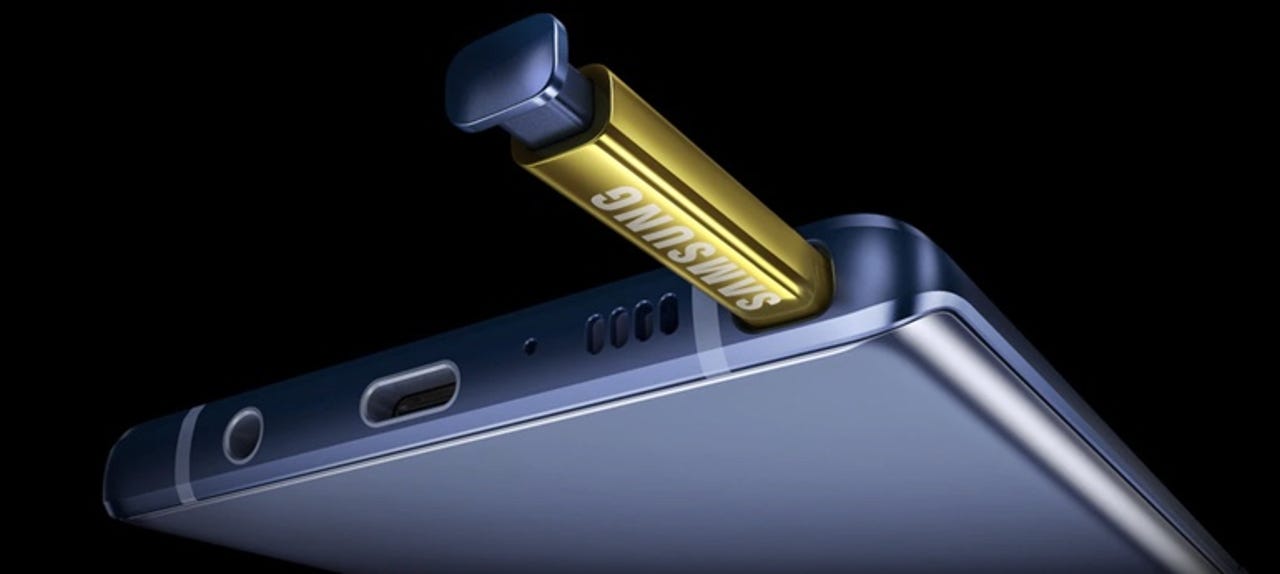Galaxy Note 9: What does 'all-day battery' mean?


Samsung Galaxy Note 9
Samsung touts the new Galaxy Note 9 has having an 'all-day battery.' But what will this mean for users?
Must read: Apple products you should not buy (August 2018 edition)
Samsung Unpacked
Breaking with tradition, Samsung has seemingly abandoned the tradition of quoting battery life in hours based on some task or other and chosen to go with the phrase 'all-day battery.' Nowhere on the Samsung site can I find anywhere where battery life is broken down into hours, however, I did come across a footnote relating to battery life:
Estimated against the usage profile of an average/typical user. Independently assessed by Strategy Analytics between 11-24 July 2018 in USA and UK with pre-release versions of SM-N960 (128GB). Actual battery life varies by network environment, features and apps used, frequency of calls and messages, number of times charged, and many other factors.
Breaking this down, it seems that what 'all-day battery' means is that if you are an average or typical user, then the Note 9 should last you all day without needing a recharge, but a whole bunch of real-world factors can get in the way of that.
This seems fair enough to me and actually seems more honest than quoting a battery life related to a specific task such as calls, web browsing, or playing music or a movie.
We don't use our smartphones for a single task, so quoting battery life in relation to a single task is meaningless, and encourages confusion, and can easily mislead buyers.
What accessories you use can also have a huge effect. I presume that users who heavily use the S Pen or use Bluetooth headphones and the like will have very different results.
So, can the Galaxy Note 9 deliver on this'all-day battery' promise?
While only real-world testing - testing carried out by a varied range of users - can conclusively answer this question (and even then, bear in mind that battery life is incredibly personal), based on the hardware specs, I'm going to say yes.
First off, while it's fair to say that the Qualcomm Snapdragon 845 chip isn't the best when it comes to energy efficiency, it also isn't that bad.
Another reference point is the Samsung Galaxy S9+. Here we have a device powered by the same processor, but which has a slightly smaller display. However, offsetting this is the fact that the S9+ has a 3,500mAh battery, while the unit in the Note 9 is 4,000mAh. And in the real world, the S9+ does have what could be called 'all-day battery,' at least for the "average" user.
Combine that with the fact that the S9+ and Note 9 are both supplied with a fast charger (unlike the iPhone), sneaking a quick recharge during the day isn't really that much of a drama. And if you have a few wireless charging pads distributed around your home and office, it's even less of an issue.
See also:
- Is iOS 11.4 draining your iPhone's battery?
- Can Microsoft's Surface Go unseat Apple's iPad?
- iOS 11 tip: How to fix broken Wi-Fi, Bluetooth, and cellular connectivity
- Seven challenges facing the tech industry
- iOS 12 public beta: Should you install it?
- iOS 12/watchOS 5/tvOS 12: Which devices are supported?
- iOS 12: The hidden feature I won't be switching on
- How to download and install iOS 12 beta
- Your iPhone is tracking your movements and storing your favorite locations all the time